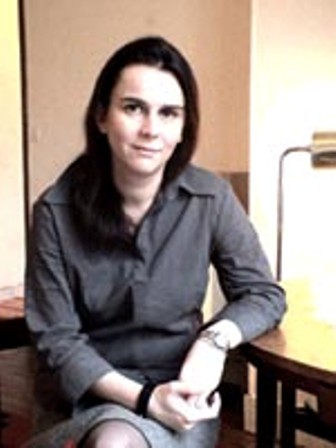
The French author, Tiphaine Samoyault, has spoken to Liberation France about her latest translation, Marilyn Monroe’s Fragments. (Note: this interview has been translated from French to English. I apologise in advance for any errors!)
“A strong, full experience”
Translator of James Joyce, Tiphaine Samoyault worked on “Fragments”:
By NATALIE LEVISALLES
The translation of Fragments was made by Tiphaine Samoyault, who is one of the translators of Ulysses by James Joyce, and is currently working on a biography of Roland Barthes.
You immediately accepted this project?
Yes and no, I was a little taken aback by the proposal. It was as if I were offered to meet someone ultra-famous , as if I were told: Obama tomorrow you’ll meet face-to-head, because the translation is still a ‘head-a-tete’.
After it became extremely hard to do that. The simple things she talks all the time, compared with men … It’s amazing, I translated phrases that I had to pronounce, or vice versa … but that’s an experience that is shared by any translator.
Besides what I do for the magazine Poetry, my most significant translation is Joyce’s Ulysses. It’s funny, there is in Fragments that famous photo of Marilyn reading Ulysses. There are other photos of her reading, but when she read Arthur Miller, one sees that this is a picture laid, when she reads Whitman and Joyce, she really reads.
What is special about this translation?
I was working on a manuscript not established: initially, I had a bundle corresponding to a first decryption done by the publishers. Then, everything changed much, the timing and sequence of text, even reading them … Until the end, we hesitated on reading some words.
Sometimes it was related to illegible handwriting – including notes written on paper bearing the letterhead of the Waldorf Hotel, a time when she was very desperate – and sometimes her spelling was erratic.
Being in front of a completely unstable text was very interesting so this instability corresponds to the emotional instability reflected in these texts that this made the experience quite strong, a bit full. I found that there was a profound truth: even in the solar side of Marilyn, even in its beauty, its light, there is something unstable.
How did you work on these texts?
The first, a note she wrote at age 17, is in a very hesitant English. Afterwards, when we see all the work she did on the language, the determination she had to speak and write well, her search for meaning, it was important that in the translation, I did not remove the uncertainty of her first draft.
Moreover, according to the emotional state in which it was written, the spelling changed much, and it’s very troubling, because after a while, you just have to look at the pages to see how her state is. But it is also sensitive to the attentive reader.
Among the texts that I like best, there’s this wonderful poem, “I left my house … green rough wood, and I love that journey over the bridges, which I find very powerful, very elliptical.
And the long letter to Dr. Greenson, very articulate, very beautiful. We can see how from the first note, written in a very grave concern about a possible infidelity by her then-husband, to this letter written after her divorce, she had gained a mastery.
That does not make it happier, but she has a mastery of expression, even in times uncontrollable. This ability to self-educate has heavily affected her. She was helped by people she met, but she was able to reach out to them.
At the same time that this translation, you were writing the biography of Barthes …
I started work on Barthes a year ago and a half. But I was not working on both manuscripts at once, and so I didn’t have two different texts in my head at the same time.
In both experiments, there is something very intimate. We leave a report in the text to enter into a relationship of proximity with human beings, which passes through the very concrete report to paper, writing, inks …
After, which is surprising in Barthes, is that if this spirit articulated, educated – overeducated, even – who has complete mastery of the language, gradually gives way, he was attracted by the non-mastery. You see it in his last work, his last texts, how it enters the batch.
Marilyn is just the opposite. We have a batch text by default, and a progressive quest of mastery.
Finally, what does this translation for you?
At first I did not know what to expect, I might have some little letters, it would be quite ordinary. I told myself that it’s not very serious, as if there was a gap with what I am. And along the way, it became a powerful experience.
I found that there was, both in what she writes and how that text happens to us, something powerful, we cannot fully possess, which is of the order of instability, fragility in writing, but also incomplete. Ultimately, I was very touched and very proud to have done that.